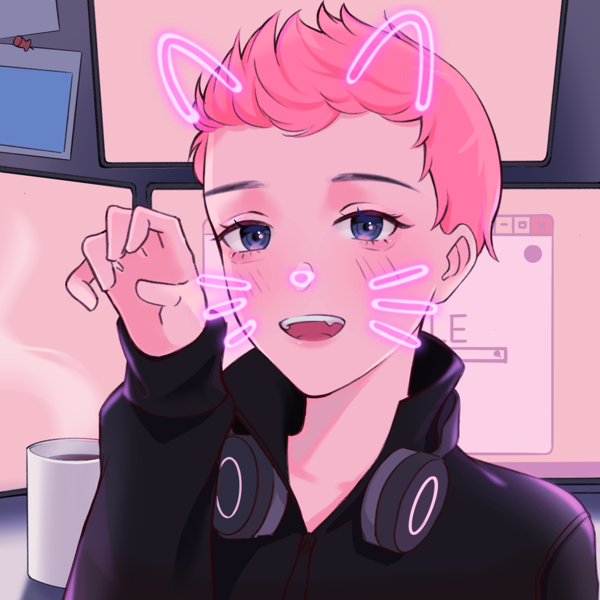Where should I mount my internal drive partitions?
As far as I searched on the internet, I came to know that
/Media = mount point for removable media that system do it itself ( usb drive , CD )
/Mnt = temporarily mounting anything manually
I can most probably mount anything wherever I want, but if that’s the case what’s the point of /mnt? Just to be organised I suppose.
TLDR
If /mnt is for temporary and /media is for removable where should permanent non-removable devices/partitions be mounted. i.e. an internal HDD which is formatted as NTFS but needs to be automounted at startup?
Asking with the sole reason to know that, what’s the practice of user who know Linux well, unlike me.
I know this is a silly question but I asked anyway.
With Linux filesystem hierarchies you’re going to run into a lot of history, conventions, quasi-standards and simply deprecated implementations.
It’s a problem of “there’s no bad way to do it so all options are equally fine”. From this arose some “guidelines” about /bin and /usr/bin, /var, etc. but few strict rules.
For a long time there was no /media. In the '90s/2000’s you would mount your CD-ROM and floppies in /mnt (e.g. /mnt/cdrom, /mnt/floppy). That was awkward as we started wanting auto-mounted things and wanted to do it from user-space. So /media/username was created to allow you to mount things with your ownership.
If it’s something you want permanently mounted but not part of a pool you can put it under any location you like really. I like locations under /var as historically /var is used for things that “vary”. You could just mount it in your $HOME if it’s something you’re going to use as a user rather than with a service.
I have a “/exports” dir for NFS mounts (e.g. /export/media, /export/storage, etc.). Just keeps it tidy and in one location.
The important thing is to use a standard that works for you and makes sense. There’s not a lot of bad places to mount things. If “/mnt” makes sense for you then go for it.
Thank You.
To piggy-back off of this, it’s not entirely uncommon to create another directory at root in enterprise environments, using /data or /application That said, I only do that for enterprise, for my personal computer, my distro defaulted to auto-mounting to a directory for each drive inside of /mnt, and I rather like that and intend to stick with it.
I know it is kinda frowned on but I like to use new directories at root to cut down on confusion as to where things are. Video storage for the NVR goes in /video, user data for Nextcloud goes in /data, etc. But I also keep everything in it’s own LXC so I don’t have one machine with 30 extra directories cluttering up the root.
Anything I add to fstab gets mounted in
/mntand removable drives get auto mounted to/media. Linux doesn’t care where you mount your drives, they can be mounted anywhere you want.Linux doesn’t care where you mount your drives, they can be mounted anywhere you want.
Thank You
Mount your internal disks to
/D:,/E:,/F:, etc.🥇
Idk, I mount my disks in /mnt/whatever, though I don’t think it matters where you mount them.
Thanks.
It ultimately doesn’t actually matter because in many cases these things are convention and there is no real system-based effect. So while it would be especially weird if your distro installed packages into those directories, it ultimately doesn’t matter. Someone already linked the filesystem hirearchy. See how tiny the /media and /mnt sections are?
I put my fixed disks into subdirectories under /mnt and I mount my NAS shares (I keep it offline most of the time) in subdirectories in /media.
fixed disks under /mnt
NAS in /media
Why ? that’s what I’m asking. Can’t you just put in the same folder and call it a day?
I put my fixed disk in /mnt
My Files, which are inside the partition mounted in /mnt/something has root as Owner. So When I try to move something to Trash, it’s not allowing me to do, Only perma delete. When saw properties it said owner is root.
Is it because mounted at /mnt?
Files under /media seems fine. files under /media says it’s owner is ‘me’
The answer to your question why is because I arbitrarily decided on that years ago. That’s basically all there is to it.
The answer to your file ownership problems I can’t answer, because I don’t have that happening. My files are mounted like so:
LABEL=BigHD /mnt/BigHD btrfs nosuid,nodev,nofail,noatime,x-gvfs-show,compress-force=zstd:1 0 0The answer to your question why is because I arbitrarily decided on that years ago. That’s basically all there is to it.
Thanks for clarifying bro
deleted by creator
Thank You.
deleted by creator
sudo chown -R user:user ./*Not afraid of terminal or anything, but can’t I do it in GUI?
EDIT: I think I can do it by going to file properties on an elevated file manager.
deleted by creator
Thank You.
I’m using Nemo. Because Mint.
Mounting to a specific location should not affect the permissions of the drive. But in the case of NTFS and some other filesystems, Linux is not compatible with their permission model, so it is simplified by e.g. making all files be only accessible by root.
You can override this default with mount options, or change the permissions to sensible values with chmod and chown, but I’m not sure if changing them will have negative side effects on the windows side so the latter may not be a good idea.Thank you bro. I think I’ll stick into making new folder for my disks in
/.I would recommend to put them inside /mnt for internal disks. It’s a bit more organized that way, and by looking at the path is easier to know that it’s in an internal drive.
Thank you for the recommendation.
Mounting locations are a convention, not a standard, mount whatever you like wherever you like. In your case, I’d mount it under /mnt/ntfs, /mnt/windows if it a windows main partition you want visible, or by drive letter if it’s a secondary drive on a dual-boot system.
Or however you want. I would keep it under /mnt, but you don’t have to.
Do maybe sure you have user permissions set up properly if this is a multiuser machine though
Edit: also I would interpret
If /mnt is for temporary
‘temporary’ as in ‘may become unmounted without seriously fucking the system’
/ and /home aren’t temporary. Everywhere else is
‘temporary’ as in ‘may become unmounted without seriously fucking the system’
Thanks bro. Now it make sense.
/C:
You mean that you create folder in
/namedC:?or a joke maybe?
Seems like a joke. 🙂
I mean, wine does that with symlinks. But not on /, don’t run wine as root.
don’t run wine as root.
why? windows virus?
Yeah. And it’s a wrapper, stuff can happen. Not sure if it even works as root.
Thanks for heads up man
deleted by creator
Use any you want. I’ve been mounting my internal secondary hard drive on /mnt for well over a year now and haven’t had any problems. Previously, I mounted it on
~/Storageand it also worked fine (though only because I’m the only user in my computer; dual-user systems would result in the other user being unable to access the hard drive).Thanks bro.
The best mounting position is
/booty.Thank You for suggestion. Gonna try that Tonight and have fun mounting loads of data.
I create /data and mount my 2nd drive there using fstab.
I then mount /data/downloads under my user downloads folder so everything goes to my 2nd drive. That way I dont have to redownload anything if I redo my main drive.
Good idea bro.
I do a similar thing with ~/Pictures and ~/Music, which are symlinked to my NextCloud Sync folder on my much larger second drive. It’s good for saving space on my main drive, too, as those two folders contain a lot of data.
Is NextCloud a cloud service like GDrive or a sync service ? Does it have a free tier? 😅
It’s like GDrive - except way more involved, you can do a lot with it. Files, office suite, photos, email, the works. There are hosts out there with various price points I’m sure, but I self-host so I can’t give any info on pricing I’m afraid.
I think I should learn about self-hosting asap.
It’s a wonderful thing if you can get a hang of it. Though fair warning, it’ll eat all your time for a fair while getting it set up 😂
time for a fair while getting it set up
That’s a sacrifice I’m willing to make.
Also for some reason lemmy seems to rarely duplicate some comments. Now I’m seeing two of your same comment and two of my same reply.
If I had to guess that’s gonna be a quirk of ActivityPub, and should self-resolve in a little bit, but I’m not an expert so don’t take me at my word there. I have some experience self-hosting setting up my own homelab over the last 2-3 years - if you’d like some “getting started” conversation, feel free to send me a DM or contact me on Matrix @darohan:tchncs.de
Basically if I add it to my fstab it goes to /mnt. I let the system handle /media for usb etc
Thank You.
The Linux FHS does not address this, so it’s up to you where to mount it. There is no correct choice, but if you want to follow standards just mount it inside /mnt which is the nearest use-case (/media could be automatically used by your DE, so avoid it). Otherwise you can just create a custom folder in root like someone else suggested.
Take a look at FHS spec.
Edit:
On arch forum someone suggests /mnt/dataThank You.
Otherwise you can just create a custom folder in root like someone else suggested
My Files, which are inside the partition mounted in /mnt/something has root as Owner. So When I try to move something to Trash, it’s not allowing me to do, Only perma delete. When saw properties it said owner is root.
Is it because mounted at /mnt?
Files under /media seems fine. files under /media says it’s owner is ‘me’
/mnt/something has root as Owner. So When I try to move something to Trash, it’s not allowing me to do
You have to change permissions or owner of that folder (not /mnt itself but the subfolder “something”).
If I’m not wrong changing permissions is enough to use gui “move to trash”, you can use chmod thru cli (man chmod) o your gui file manager with root privileges.If you want only your user be able to read/write to that disk, then change the owner using chown thru cli (
man chown) or again your gui file manager.So, if I use
chmod, I get the access and other users (if any) are free to do so.In case of
chown, I get the full access and others can’t gain access unless I permit.Right?
On Linux files and folders have permissions info for owner, group and everyone else. So you can set individual permissions for these.
By setting the owner to root, if you want to make your user able to read/write that folder, you must either give permissions to everyone to read/write OR assign a group to the folder, give the group permissions to read/write and add your user to that group.
If you instead set your user as the owner of the folder, you can make only your user able to read/write without other fuss.
If you are a newbie, stick to gui file manager. Can you please tell me what file manager are you using? Most of the time you can change permissions thru right click > propriety > permissions.
If you instead set your user as the owner of the folder, you can make only your user able to read/write without other fuss.
Thanks for the tip.
Can you please tell me what file manager are you using?
I’m using Nemo. As it’s the default one on Mint Cinnamon.
Permanent drives should be put wherever you want them to, for example I have mine mounted in
/ld1for Large Disk 1./mediais supposed to be used by systems to mount things you plug, but some systems move that to/var/run/mediaor other places./mntis there so you don’t have to create a folder in case you want to mount something really quick.Thanks man.
Actually since their permanent non-removable drives, I would say wherever you want to place them, if they’re meant primarily for storing user-based data you can do like what I used to do which was store them in within the home directory just as specific names. Like my old setup before I went proxmox was /backups was my backup drive, /home was my home drive that stored most of my users /home/steam held all my game server drive and /home/storage held my long term cold storage drive.
Thanks man. I think I’ll stick to this.
There’s also
/run/media/[username]/. Don’t know if it’s an OpenSUSE thing or Plasma but everything I mount through KDE’s file manager Dolphin ends up there. Including stuff I set up to mount automatically.It is the same on Mint too.









